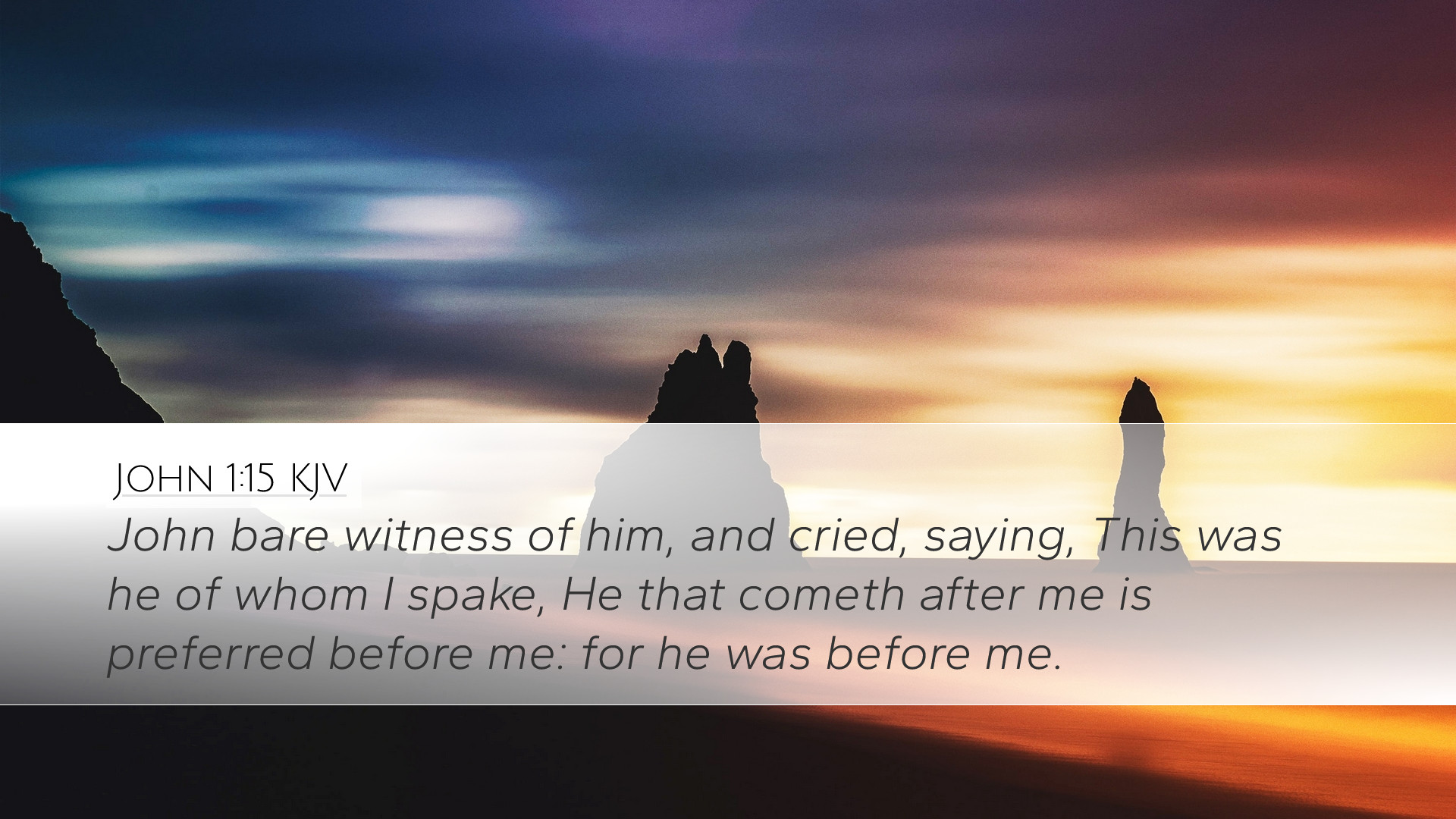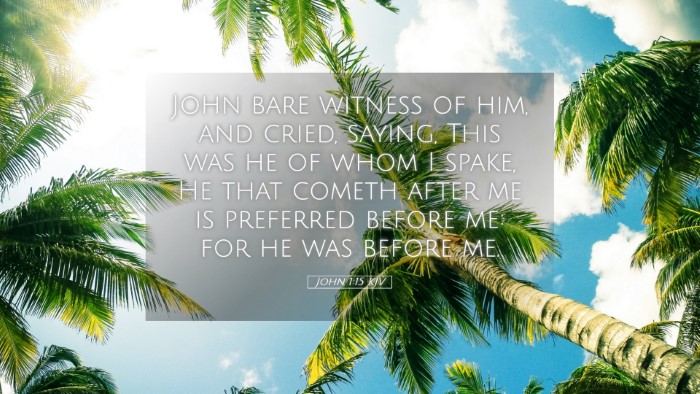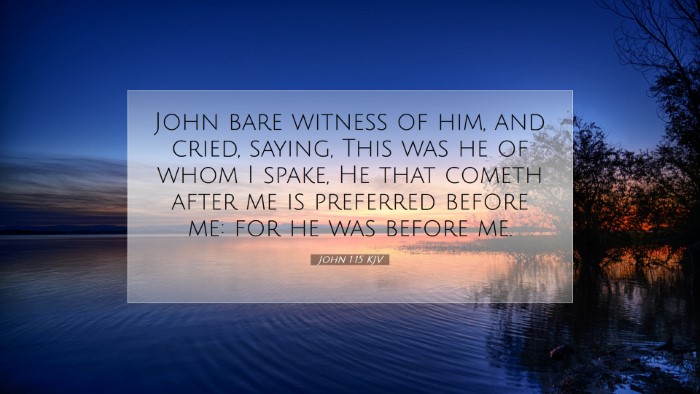Commentary on John 1:15
In John 1:15, we encounter a profound declaration about the preeminence of Christ, marked by both theological depth and significant implications for understanding His nature and mission. This commentary draws on the insights of esteemed biblical scholars such as Matthew Henry, Albert Barnes, and Adam Clarke.
The Text
John 1:15 - "John bore witness of Him and cried out, saying, 'This was He of whom I said, "He who comes after me is preferred before me, for He was before me."' "
The Context
The Gospel of John opens with a profound prologue that establishes the divinity of Christ. The verses preceding John 1:15 introduce Jesus as the eternal Word (Logos) through whom all things were made. The declaration of John the Baptist in this verse serves as a pivotal testimony about Jesus' preeminence, contrasting his own role as the forerunner.
Commentary Insights
1. The Role of John the Baptist
Matthew Henry emphasizes John the Baptist's role as a witness, stating that John came not merely as a prophet, but as one who boldly proclaimed the advent of the promised Messiah. His testimony is noteworthy because it shows the transitional phase of the old covenant fulfilling its purpose through the coming of Christ.
- Witnessing to Truth: John’s bold proclamation serves to prepare the hearts of the people for the Messiah’s arrival. Henry states that John recognized his position as a servant, rather than the Savior, which is essential for understanding humility in ministry.
- Testimony of Preeminence: The phrase "preferred before me" reflects John’s understanding of Christ’s eternal existence and significance. Henry argues that John’s recognition of Christ’s superiority is a model for believers today.
2. Theological Implications
Albert Barnes notes the importance of recognizing Jesus' existence before John the Baptist. His analysis emphasizes that the statement "for He was before me" affirms Christ’s eternal nature and pre-existence, a fundamental doctrine that undergirds Christian theology.
- Eternal Pre-existence: Barnes asserts that Christ's existence before John is a critical aspect of His divine identity. This points to the doctrine of the Trinity, wherein Jesus exists eternally with the Father.
- Incarnation and Time: The juxtaposition of John’s earthly ministry with Christ’s eternal nature invites reflection on the mystery of the incarnation, wherein the eternal God enters into human history. This reality shapes Christian worship and doctrine.
3. The Witness of the Church
Adam Clarke contributes to the conversation by exploring the implications of John's proclamation for the early church and its witness. He emphasizes that the church's mission is rooted in a similar witness to Christ’s divinity and authority.
- Continuation of Witness: Clarke emphasizes that the church is called to continue the testimony of John, proclaiming Christ's preeminence in a culture that often elevates human wisdom over divine revelation.
- Calling and Humility: The humility demonstrated by John reflects a key aspect of Christian leadership; it invites leaders and believers alike to recognize their role in pointing others to Christ rather than seeking their own glory.
Reflection for Pastors and Theologians
Given the weighty theological declarations encapsulated in this single verse, pastors and theologians are encouraged to communicate the significance of John’s testimony effectively. Reflecting on their own identity within the Church, they must continually point to Christ, affirming His preeminence in all aspects of life and ministry.
Conclusion
John 1:15 stands as a crucial verse that encapsulates the essence of Christ’s superiority and the role of His forerunner, John the Baptist. Drawing from the insights offered by Matthew Henry, Albert Barnes, and Adam Clarke enriches our understanding of this text, urging believers toward a deeper appreciation of Christ’s divine identity and our call to witness with humility and truth.


